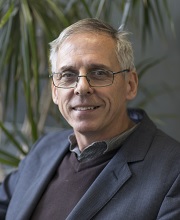Steve Mithen

-
+44 (0) 118 378 7363
-
Professor
Areas of interest
Steven's research interests cover from the origin of Homo at c. 2 million years ago to the origin and spread of farming, and the use of heritage for sustainable development, individual and community wellbeing:
1. Late Pleistocene and Early Holocene Hunter-Gatherers and Farmers. For this he directs major field projects in western Scotland and southern Jordan involving the survey and excavation of prehistoric settlements.
- Excavations at WF16
- People and Birds in the southern Levant
- Excavations at Rubha Port an t-Seilich.
2. Cultural heritage for sustainable development and community archaeology. Steven's interests have developed from wishing to make his own research have greater value for the local communities in the areas where his fieldwork has been based, to a more general concern about how heritage can support individual and community wellbeing. He has two geographic areas of particular interest, Islay and Faynan, and two specific projects underway: Our past, Our Future, and Dunyvaig castle:
- Islay Heritage
- Dunyvaig Castle
- Faynan Heritage
- Our past, Our Future, All Together in Faynan.
3. Evolution of the Human Mind, Language and Music. Steven has been one of the pioneers of cognitive archaeology, drawing on research within psychology, neuroscience and philosophy of mind for the interpretation of the archaeological record. His current project, Saying the word, focuses on the relationship between words, thought and cultural evolution.
Background
Steven Mithen has a BA (hons) in Prehistory & Archaeology from Sheffield University, an MSc in Biological Computation from York University, and a PhD in Archaeology from Cambridge University.
Between 1987 and 1992, he was a Research Fellow at Trinity Hall and then Lecturer in Archaeology at Cambridge. After moving to the University of Reading, he was promoted to Senior Lecturer (1996), Reader (1998) and then Professor of Early Prehistory (2000). In August 2002 he was appointed as the first Head of the School of Human & Environmental Sciences, formed by the Departments of Archaeology, Geography, Soil Science and the Postgraduate Institute of Sedimentology, a post he held until August 2008 when he became Dean of the Faculty of Science.
In 2010, he was appointed a Pro Vice Chancellor for Internationalisation, a position he held for four years during which he developed a series of research and teaching partnerships for Reading, notably the Reading-NUIST Academy in China. In 2014 he was appointed Pro Vice Chancellor for Research, during which he undertook a major reshaping or research leadership, management and organisation at the University. Between 2014 and 2018, Steven also held the post of Deputy Vice Chancellor. In 2018 Steven completed his management roles at the University and returned to the Department of Archaeology as Professor Early Prehistory. He was elected as a Fellow of the British Academy in 2004.
Academic qualifications
- BA (hons) Prehistory & Archaeology – Sheffield University
- MSc, Biological Computation – York University
- PhD, Archaeology – Cambridge University.
Professional bodies/affiliations
- Fellow of the British Academy.